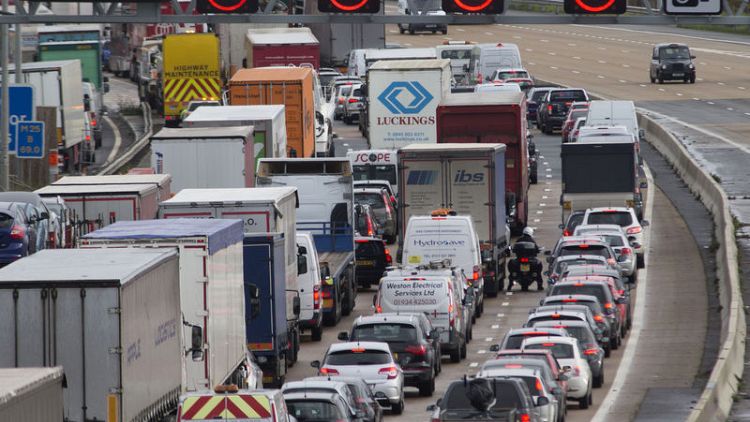LONDON (Reuters) - British car output fell for the tenth month in a row in March, hit by a slowdown in key foreign markets, and the sector stands to suffer a lot more if the country leaves the European Union without a deal, an industry body said on Tuesday.
Output tumbled by an annual 14.4 percent to 126,195 cars in March, the Society of Motor Manufacturers and Traders said.
Exports, which account for nearly four out of every five cars made in Britain, were down by 13.4 percent.
The SMMT said analysis it had commissioned predicted output would fall this year to 1.36 million units from 1.52 million in 2018, assuming London can secure a transition deal with the EU.
If Britain has to rely instead on World Trade Organization rules for its trade with the bloc, which include import tariffs, output is forecast to fall by around 30 percent to 1.07 million units in 2021, returning to mid-1980s levels, the SMMT said.
The forecasts were produced for SMMT by AutoAnalysis, a consultancy.
Prime Minister Theresa May has secured a delay to the Brexit deadline until Oct. 31, giving her more time to try to break an impasse in parliament over the terms of Britain's departure from the EU.
Foreign minister Jeremy Hunt travelled to Japan earlier this month to try to persuade the Japanese government and Toyota, which has a big presence in Britain, that London was determined to avoid a no-deal Brexit.
"Just a few years ago, industry was on track to produce 2 million cars by 2020 - a target now impossible with Britain's reputation as stable and attractive business environment undermined," SMMT chief executive Mike Hawes said.
"All parties must find a compromise urgently so we can set about repairing the damage and diverting energy and investment to the technological challenges that will define the future of the global industry."
(Reporting by William Schomberg, editing by David Milliken)



